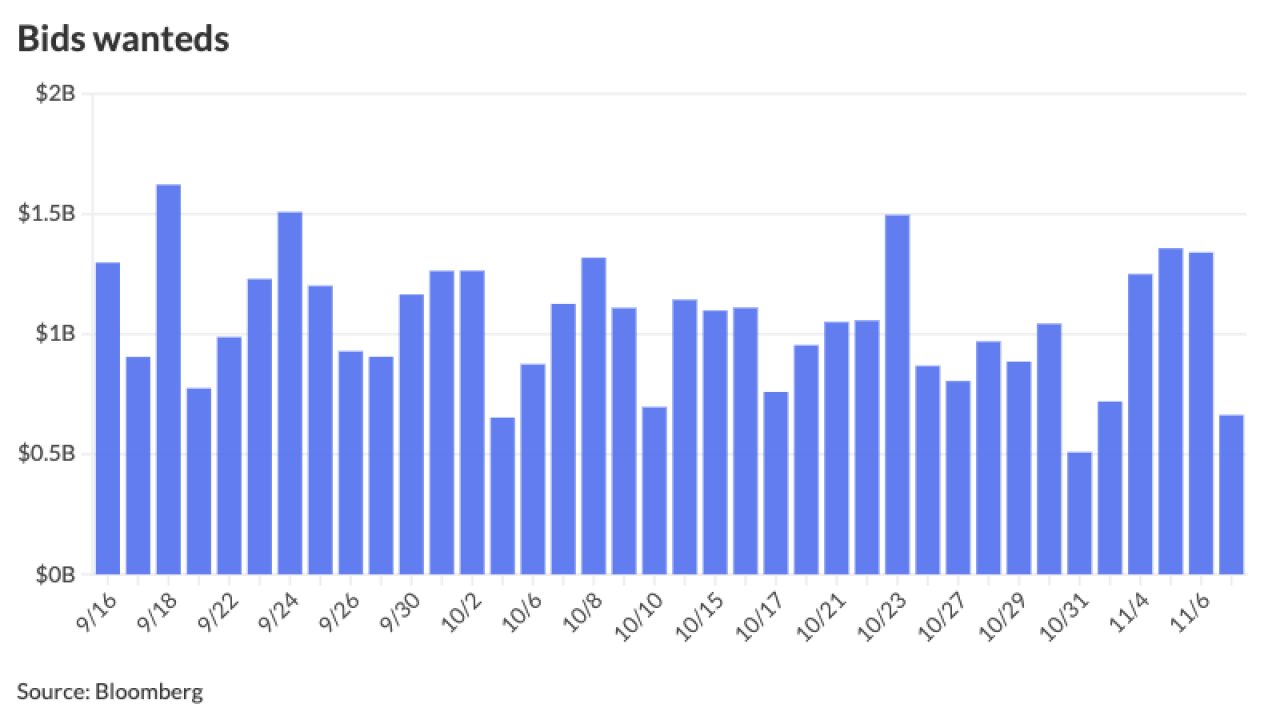CHICAGO — Peoria, Illinois-based OSF Healthcare System will sell $340 million of debt this week, a big piece of a $470 million refunding to take out bridge financing that was used to acquire two hospitals shed by the former Presence Health before its acquisition by Ascension Health Alliance.
In addition to taking out the interim 2017 bridge loan, proceeds will refund other existing debt.
OSF signed a letter of intent with Presence to acquire Presence Covenant Medical Center in Urbana and Presence United Samaritans Medical Center in Danville in early August last year. Two weeks later the plans to join Ascension were announced. All are Roman Catholic-run, not-for-profit healthcare organizations.
Covenant has 206 beds and more than 700 employees, while United Samaritans has 174 beds and more than 550 employees. At the time, Presence said the deal allowed it to focus on its 10 other northern Illinois hospitals. OSF chief executive officer Kevin Schoeplein called the Urbana and Danville communities “vibrant areas” that would “help extend the OSF HealthCare Ministry.”
The deal was completed in February. S&P reported the acquisition costs at $185 million.
The bonds will sell through the Illinois Finance Authority. JPMorgan and Morgan Stanley are senior managers and will provide letters of credit on the floating-rate tranches for $65.6 and $65.7 million.
The fixed-rated tranche for $341 million will price Wednesday. The floating-rate paper will sell next week with a closing on all three series set for Oct. 17, according to Matt Robbins, senior vice president at Kaufman Hall & Associates LLC, which is advising OSF. Chapman and Cutler LLP is bond counsel.
Ahead of the sale, Moody’s Investors Service affirmed OSF’s A2 rating and negative outlook on $1.15 billion of debt. S&P Global Ratings affirmed its A rating and stable outlook. “The stable outlook reflects our expectation that OSF will be able to successfully integrate the two new hospitals into the system and sustain the improving operations. It also reflects our view that OSF will be able to meet long-range plans that call for an operations at a level that will support said plans,” S&P said.
“OSF Healthcare's A2 reflects Moody's expectation that the system will maintain its presence as a relatively large multi-site system in northern, central, and southern Illinois, and its leading market positions in several markets including its key Peoria market,” Moody's analysts wrote.
Factors that offset the system’s strengths include its relatively high direct leverage, sizable indirect debt, strong competition in all markets, and heavy reliance on its more profitable flagship facility.
The hospital acquisitions pose positives and negatives as they “will add some scale and potential upside opportunity, but will also hinder deleveraging and expose OSF to a market dominated by the Carle Foundation,” Moody’s said.
Moody’s attributed the negative outlook to concerns over OSF’s ability to achieve and sustain stronger margins that offset its high leverage at the current rating level. Capital investments in the coming years are expected to impede reduced leverage.
The system is on track to generate $2.8 billion of operating revenue for fiscal 2018, up from $2.5 billion last year, with 193 days cash on hand. The system’s operating margins are expected to hold steady in the 8% range and are unlikely to achieve the 10% high water mark level in 2015 due to headwinds from higher expenses and payor pressures, Moody’s said.
The bonds are backed by a security interest in the unrestricted receivables of the obligated group. Most of the system’s facilities are members of the obligated group, which includes most of OSF Healthcare System’s hospitals, Ottawa Regional Hospital & Healthcare Center, Ottawa Regional Hospital Foundation, and the OSF Multi-Specialty Group.

The system operates 13 hospitals, with all but one located in Illinois. A single, critical-care facility is located in Michigan’s Upper Peninsula.
OSF carries a sizable unfunded pension obligation of $437 million that pressures the debt load, Moody’s said. OSF's pension plan was frozen in 2011. It is a Church plan that is not subject to Employment Retirement Income Security Act — ERISA — requirements. Class action litigation challenging the status of the plan adds some uncertainty to pension costs, Moody’s said in its report published ahead of a federal court ruling late last week. The court sided with OSF and dismissed the case. The U.S. Supreme Court ruled in June 2017 that a similar plan managed by Advocate Health was exempt.





